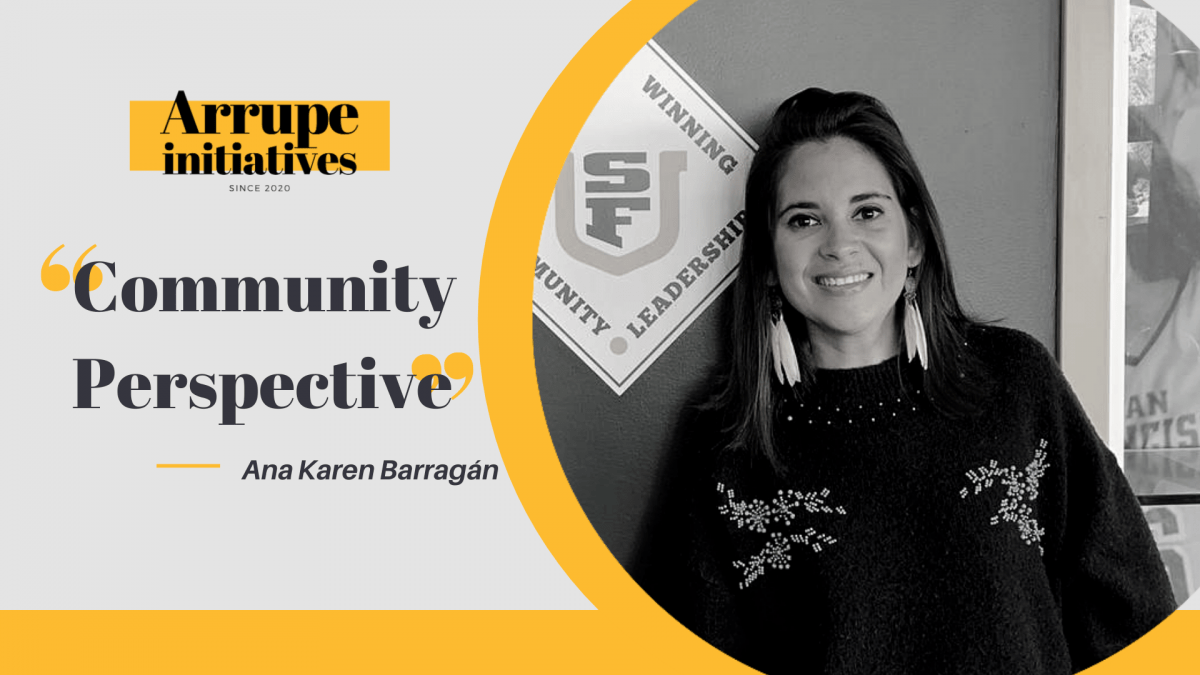____________________________________________

Mexican observers in a historic election in the United States
by Ana Karen Barragán
The elections in the United States of America have brought the world’s attention to the country. Approximately 93 million U.S. citizens cast their votes before November 3, others had the opportunity to vote until Election Day, and many others chose not to. However, there are thousands of others who participated as mere observers, among them are those in the bench labeled as international students, visa workers, undocumented migrants, and many other figures who live in this country today. Together we hope to hear results that place human dignity, reconciliation, and justice first.
Looking out the window at what is happening in a country that is not one’s own has a different flavor, my insides (feelings, emotions, thoughts) do not move as they do when I am in Mexico. Nevertheless, we do not cease to feel a sense of anxiety because of the consequences that we have to face as Mexicans, as Latin Americans, as foreigners, and as citizens of the world. Again and again, I find myself listening to podcasts, reading what’s on social media, and checking the news on tv and digital newspapers.
From my privileged place, as a Mexican international student with a visa, I can also perform superficial analyses that show my concern for continuing my studies here. And so, from the comfort and guarantee of a university dormitory, with food access, wifi and computer, and all the basic services I need to continue this life project, I look and judge the choice.
It is true that I hear Mr. Trump’s insults against my country and my people, and my skin is bristling. Sometimes I even laugh to avoid anger. At other times, I self-censure myself from speaking Spanish to avoid any unpleasant incidents in public. And yet, I always have the comfortable option of returning to my country and going on with my life. But this is not the case for everyone; there are millions who live in expectation of a decision that, while no longer aspiring to unrestricted respect for their human rights, at least hopes that the levels of discrimination and harassment will stop.
Therefore, it is time to pause and think… what does this election mean for the thousands of Mexicans living in the United States? what does it mean for the children put in cages and separated from their mothers and fathers? who recovers that lost childhood for them? who recovers that warmth from their mother that they could not obtain in the midst of the nightmares brought by the enemies of equity, justice, and human dignity? who watches over the fair wages of Mexicans who are in the fields cultivating and harvesting what American families will taste during Thanksgiving?
Is there really hope for them? I have my suspicions that whoever the winner is, the historical debt is far from settled. And Mexicans will continue to occupy the workspaces that Americans are unwilling to take on or pay for.
It is clear to us that one of the candidates despises the Mexican population, but will the other really be watching over the rights of these people who day in and day out produce, care for, cook, clean, and educate for a precarious wage that has suited the US government so well? Let us not forget the numbers of the Obama administration. Let’s not be naive.
Who do these two white men represent?
What are the interests that are at the heart of their election campaign? Will they really respect the ideas of a woman of color as vice president? Who does Kamala Harris represent and why did Biden choose her? In our hope are the ideals of citizenship that seek to start from diversity and equity, but we also dream with our feet on the ground and with a critical conscience that tells us that in politics not everything is what it seems. Let us hope that the future reality will prove right the hunch of ideals that our continued disillusionment with the precarious leadership that prevails in the world.
How do we, as global citizens, impact the construction of a more integrated, just, united, and reconciled citizenship? How do we respect the processes that do not correspond to us but that impacts all of us who cannot cast a vote?
This is a personal perspective, and the author wanted to acknowledge that she is speaking from a particular Mexican immigrant point of view, that many might empathize with, but that shouldn’t be read as a universal Latinx perspective. At Arrupe Community Perspectives we invite all to share their own ideas and worldview.



